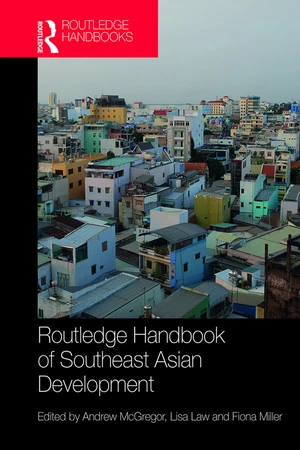Southeast Asia is one of the most diverse regions in the world â hosting a wide range of languages, ethnicities, religions, economies, ecosystems and political systems. Amidst this diversity, however, has been a common desire to develop. This provides a uniting theme across landscapes of difference. This Handbook traces the uneven experiences that have accompanied development in Southeast Asia. The region is often considered to be a development success story; however, it is increasingly recognized that growth underpinning this development has been accompanied by patterns of inequality, violence, environmental degradation and cultural loss. In 30 chapters, written by established and emerging experts of the region, the Handbook examines development encounters through four thematic sections: ⢠Approaching Southeast Asian development, ⢠Institutions and economies of development, ⢠People and development and ⢠Environment and development. The authors draw from national or sub-national case studies to consider regional scale processes of development â tracing the uneven distribution of costs, risks and benefits. Core themes include the ongoing neoliberalization of development, issues of social and environmental justice and questions of agency and empowerment. This important reference work provides rich insights into the diverse impacts of current patterns of development and in doing so raises questions and challenges for realizing more equitable alternatives. It will be of value to students and scholars of Asian Studies, Development Studies, Human Geography, Political Ecology and Asian Politics.
Price history
Feb 10, 2022
€50.60

